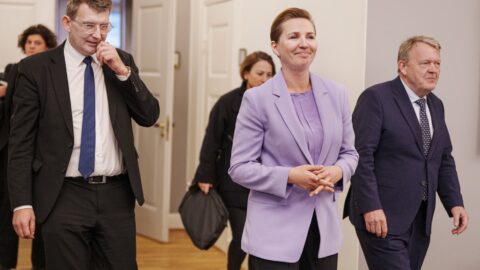Denmark’s Prime Minister (Statsministeren) Mette Frederiksen issued an unconditional apology to women and girls affected by the Greenland forced IUD scandal, acknowledging systemic discrimination during a Danish-run contraception programme in the 1960s and 1970s.
In a joint statement with Greenland’s Prime Minister Jens‑Frederik Nielsen (Formand for Naalakkersuisut), the two leaders recognised the harm caused and pledged follow‑up action once an independent inquiry reports in early September.
Joint apology and acknowledgement of systemic discrimination
Frederiksen said the state “takes responsibility” for thousands of Greenlandic women who were subjected to non‑consensual intrauterine device (IUD) insertions while Denmark administered healthcare in Greenland up to 1992.
She also extended the apology to other cases in which Greenlanders faced systematic unequal treatment across the Kingdom of Denmark (Rigsfællesskabet). Nielsen issued a parallel apology on behalf of Naalakkersuisut for cases that occurred after Greenland assumed responsibility for its health system in 1992.

Compensation and redress in the Greenland forced IUD scandal
The joint statement signals that compensation will be addressed after the inquiry’s publication. Greenland’s government has already said affected women will have access to redress, while Copenhagen will continue talks with Naalakkersuisut on “possible financial compensation.” Separately, 143 women have sued the Danish state, seeking a total of 43 million DKK (€5.8 million) in damages for human‑rights violations linked to the case.
What the historical record shows so far
Investigations and survivor testimonies indicate that, between 1966 and 1975, thousands of Greenlandic girls and women—some as young as 12—were fitted with IUDs, often without consent. From 1966 to 1970 alone, around 4,500 IUDs were inserted, roughly half of Greenland’s then 9,000 fertile women. The policy aimed to curb population growth and reduce social costs, and its legacy continues to affect families and communities.
While the apology was broadly welcomed, the lawsuit brought by the 143 women proceeds in parallel. Their counsel argues that survivors experienced long‑term physical and psychological harm, and that accountability requires both recognition and material redress. The court case is expected to test how historic abuses within the Rigsfællesskabet are remedied today.
Why this matters for Greenland–Denmark relations
The apology marks a significant step in addressing the colonial‑era legacy within the Kingdom of Denmark. It may help rebuild trust between Copenhagen and Nuuk ahead of the inquiry’s findings. Concrete decisions on compensation and follow‑up services—such as access to healthcare, counselling and records—will shape how the two governments translate the apology into lasting change for survivors and their families.
The independent report is due in early September. Its publication will likely determine the scope of compensation, the administrative reforms needed to prevent future abuses, and the next phase of Greenland–Denmark cooperation on historical justice within the Rigsfællesskabet.






